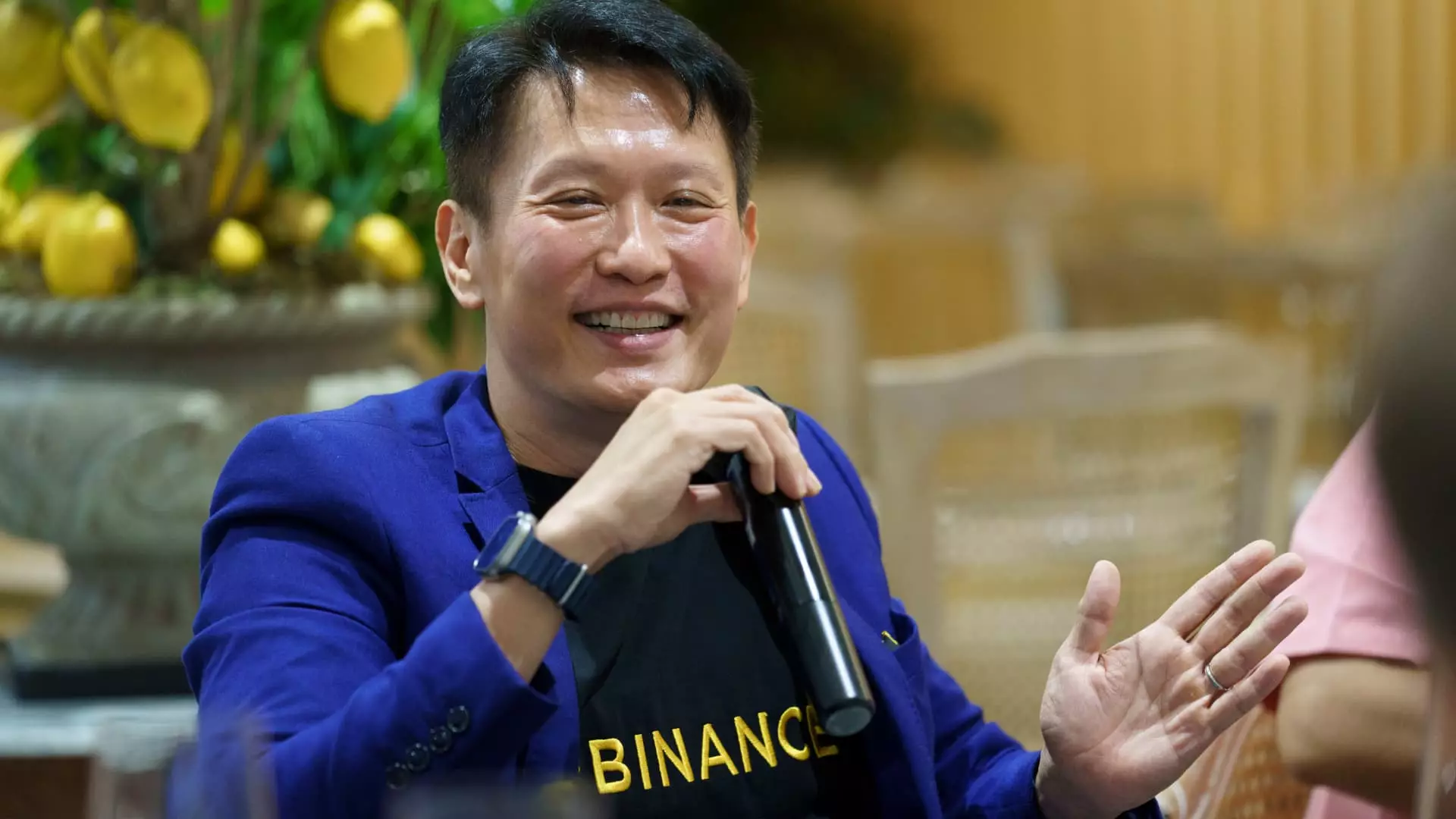In the fast-evolving world of cryptocurrency, few narratives are as captivating as the surprising resurgence of Binance amid shifting political tides. As the landscape transforms under the leadership of President Donald Trump, Binance has gone from pariah to potential power player in Washington. Richard Teng, the newly appointed CEO, suggests that the Trump administration’s policies could be a defining moment for the cryptocurrency sector, presenting an environment that is potentially conducive to growth and innovation. This political pivot signifies a break from the stringent regulatory atmosphere that dominated the industry under the previous administration, and it may herald a new dawn for crypto advocates who longed for less restrictive governance.
The transition within Binance itself mirrors the broader changes in the political landscape. Initially characterized by its rebellious spirit — epitomized by its billionaire founder Changpeng “CZ” Zhao, who faced severe penalties — the platform is now adopting a more diplomatic demeanor. Under Teng, Binance is openly engaging with governmental entities while still asserting its independence through careful structural organization. By separating its U.S. operations from its international endeavors, Binance appears to be playing a strategic game of compliance aimed at solidifying its role and reputation in the market.
Collaborative Ventures with Political Players
As the relationship between Binance and political elites deepens, the prospect of collaboration with the Trump family has emerged, reflecting a strategic approach to establishing credibility in the U.S. market. Discussions about potential financial partnerships illustrate a shift in how crypto firms can engage with influential political figures rather than avoid them. If these partnerships materialize, it may become a case study in merging business with politics, which is a relatively rare phenomenon in the crypto world. This could also pave the way for further entrepreneurial endeavors, such as launching cryptocurrency products, that might not have been possible in less favorable regulatory environments.
Moreover, the partnership discussions with World Liberty Financial to create a dollar-pegged stablecoin exemplify a pragmatic approach to financial innovation. Stablecoins are fundamental to enhancing liquidity and enabling seamless transactions in crypto ecosystems. This pivot towards cooperation could potentially reshape public perception of Binance and legitimize its operations among skeptics who equate crypto with illegality and subversion.
A Global Expansion Fueled by Political Favor
Teng has made it clear that Binance’s growth trajectory is now entering an unprecedented phase. The platform reportedly boosted its user base from 170 million to 265 million within a single year, and the firm is expanding its global reach with licenses in 21 jurisdictions. This allows Binance not only to fortify its position but also to leverage relationships in countries around the world, from Australia to the United Arab Emirates. The previous regulatory clampdown known as Operation Choke Point 2.0 may be behind them, but there are questions regarding the long-lasting implications of such fast-paced global expansion.
The dynamics of the current political landscape suggest a more favorable climate for cryptocurrencies, especially as new governments become more open to innovation. Countries are recognizing the economic potential of crypto and are increasingly seeking partnerships that might yield mutual benefits. This kind of geopolitical engagement, however, raises questions about sustainability; can Binance maintain this momentum when in some regions, it must grapple with varying regulatory expectations?
Error and Accountability: Lessons Learned
The past missteps of Binance cannot be overlooked. The company faced a hefty $4.3 billion settlement with U.S. regulators, a clear indication of its checkered history. However, Teng approaches this topic with a transparency that is refreshing in the corporate world. He acknowledges past failures in compliance and emphasizes the importance of taking corrective measures, including a substantial investment in their compliance team to the tune of over 1,300 professionals. This willingness to face adversity head-on showcases a paradigm shift in corporate governance that prioritizes responsibility over defiance.
Yet, the real test might not come from the regulatory realm alone; incidents such as the imprisonment of Binance executives in Nigeria highlight ongoing challenges. While Teng insists on a collaborative approach with governments, local authorities still impose risks that are beyond the company’s control. The legal troubles faced internationally could pose reputational risks that undermine Binance’s strategic shifts.
The Future of Crypto Versus Traditional Investments
As cryptocurrency inches closer to mainstream acceptance, Binance is utilizing technological integration — particularly artificial intelligence — for operational efficiencies across customer service and security. This use of advanced technology is crucial as it bridges the gap between the burgeoning crypto market and traditional investment paradigms. Moreover, Teng believes ETFs serve as crucibles, ushering traditional investors into the crypto sphere, thereby reinforcing Binance’s fundamental position in a highly competitive arena.
With a significant investment from a consortium tied to Middle Eastern interests, Binance demonstrates its appeal to institutional investors. Such moves are critical as they symbolize the merging of technological advancement within a framework supported by traditional finance. It also prompts the question: can crypto platforms maintain market dominance in the face of growing competition and regulatory barriers?
By playing its cards right and leveraging its newfound political connections, Binance has the potential to redefine what a cryptocurrency exchange can be, emerging from the shadows into a powerful player on the world stage. This evolution is not just a corporate spectacle; it is emblematic of a broader transformation within the financial sector that could reshape our interactions with money for generations to come.

